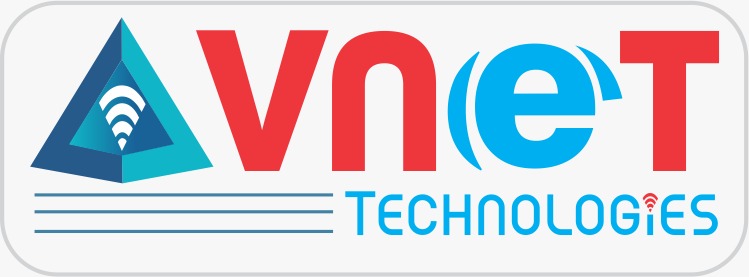
In today’s tech-driven world, companies across the globe are striving to stay competitive by adopting innovative technologies and methodologies. In India, this trend is no different. With a rapidly growing IT sector, businesses are increasingly seeking professionals who are proficient in tools and skills that can help them build, deploy, and scale applications efficiently. Among the most sought-after skills are Linux and AWS DevOps, which have become central to modern infrastructure and cloud-based solutions. Here’s why these skills are in high demand in India.
1.Linux: The Backbone of Modern IT Infrastructure
Linux has long been the go-to operating system for developers, system administrators, and DevOps engineers. This open-source OS is widely used for its stability, security, and flexibility. Here’s why companies in India value Linux expertise:
Widely Used in Data Centers and Cloud Environments
Linux powers most of the servers running in data centers worldwide, including those in India. Its use in cloud computing platforms like Amazon Web Services (AWS), Google Cloud, and Microsoft Azure makes it a critical skill for IT professionals. As more organizations migrate to cloud environments, knowledge of Linux becomes indispensable.
Cost-Effective and Open-Source
Linux is free to use, making it an attractive option for companies looking to minimize operating costs. Given that it does not come with licensing fees like other operating systems, Linux allows businesses to allocate more resources to other areas, such as development and infrastructure improvement.
Security and Stability
Linux is known for its robust security features. As cyber threats become more sophisticated, companies need professionals who can leverage Linux’s security mechanisms to safeguard critical systems and data. Its stability also makes it ideal for running mission-critical applications that require minimal downtime.
2.AWS DevOps: The Future of Cloud and Automation
AWS (Amazon Web Services) has transformed the way organizations deploy and manage applications. It provides a comprehensive suite of cloud services that companies use for computing power, storage, databases, machine learning, and much more. As a result, AWS DevOps skills have become essential for professionals in India. Here’s why:
Cloud-Native Approach
AWS offers a cloud-native infrastructure that helps companies scale their operations seamlessly. By using AWS, businesses can deploy applications more quickly, using services like EC2 (Elastic Compute Cloud), S3 (Simple Storage Service), Lambda (serverless computing), and ECS (Elastic Container Service). Professionals skilled in AWS and DevOps principles can build and maintain scalable and highly available infrastructure, ensuring better performance and cost efficiency.
Automation and Continuous Integration
AWS DevOps practices revolve around automating tasks to improve software delivery and operational efficiency. Continuous Integration (CI) and Continuous Deployment (CD) are essential components of the DevOps culture, and AWS tools such as CodePipeline, CodeDeploy, and CodeCommit enable professionals to automate the build, test, and deployment pipeline.
Automation reduces manual errors and accelerates development cycles, making it a key differentiator for businesses in the highly competitive Indian market. Companies are particularly eager to hire engineers with experience in automating infrastructure provisioning, configuration management, and application deployment.
Scalability and Cost Management
One of the biggest advantages of AWS is the ability to scale applications up or down based on demand. Professionals with AWS DevOps skills can manage dynamic workloads and optimize costs by using the right combination of instance types, autoscaling, and storage options. Additionally, services like AWS CloudWatch help monitor applications and infrastructure, providing insights that lead to cost-saving decisions.
3.The Rise of the DevOps Culture
In the past, software development and IT operations were siloed into separate teams with limited collaboration. However, the rise of the DevOps culture has brought these two teams together to improve communication, collaboration, and automation in the development process. DevOps is all about removing manual bottlenecks and enabling faster delivery of software with higher quality.
Shorter Development Cycles
DevOps practices enable faster development cycles by automating manual tasks such as testing, building, and deployment. The combination of AWS for cloud infrastructure and Linux for server management allows DevOps professionals to streamline these tasks, resulting in a quicker time-to-market for software products.
Improved Collaboration
DevOps emphasizes cross-functional collaboration. Development, operations, and QA teams work closely together, breaking down traditional barriers. This collaborative approach increases transparency, accelerates decision-making, and leads to more reliable and performant software solutions.
- India’s Growing Cloud Adoption
India is rapidly embracing cloud technology, with businesses across sectors leveraging cloud platforms like AWS to enhance their IT capabilities. According to reports, the Indian cloud market is expected to grow significantly in the coming years, fueled by the increasing adoption of cloud-native applications, AI-driven services, and digital transformation strategies.
As a result, companies are seeking professionals with expertise in cloud computing, DevOps, and Linux to help them manage cloud infrastructure, optimize operations, and scale their applications efficiently.
- High Salaries and Career Opportunities
The demand for professionals with AWS and Linux DevOps skills has led to a surge in salaries and job opportunities in India. With cloud adoption becoming the norm, businesses are offering attractive compensation packages to attract top talent. Additionally, the role of DevOps engineer is expected to continue growing, as more companies transition to cloud-based environments.
Conclusion
As businesses in India adopt cloud technologies and embrace DevOps practices, the demand for professionals with Linux and AWS DevOps skills continues to rise. These DevOps skills are crucial for building efficient, scalable, and secure infrastructure. With the rapid growth of cloud adoption and the increasing need for automation, professionals who possess these abilities are well-positioned to take advantage of a promising career in the IT sector.
Vnet Technologies, located in Saravanampatti, Coimbatore, is one such company that plays a pivotal role in this dynamic tech industry, helping professionals acquire the essential skills for cloud-based DevOps roles. Whether you’re a seasoned professional or just starting, acquiring Linux and AWS DevOps skills will undoubtedly open doors to exciting job opportunities and career growth in India’s tech landscape. Skills required for AWS DevOps, such as cloud infrastructure management, automation, and continuous integration, will give you an edge in this highly competitive field.
